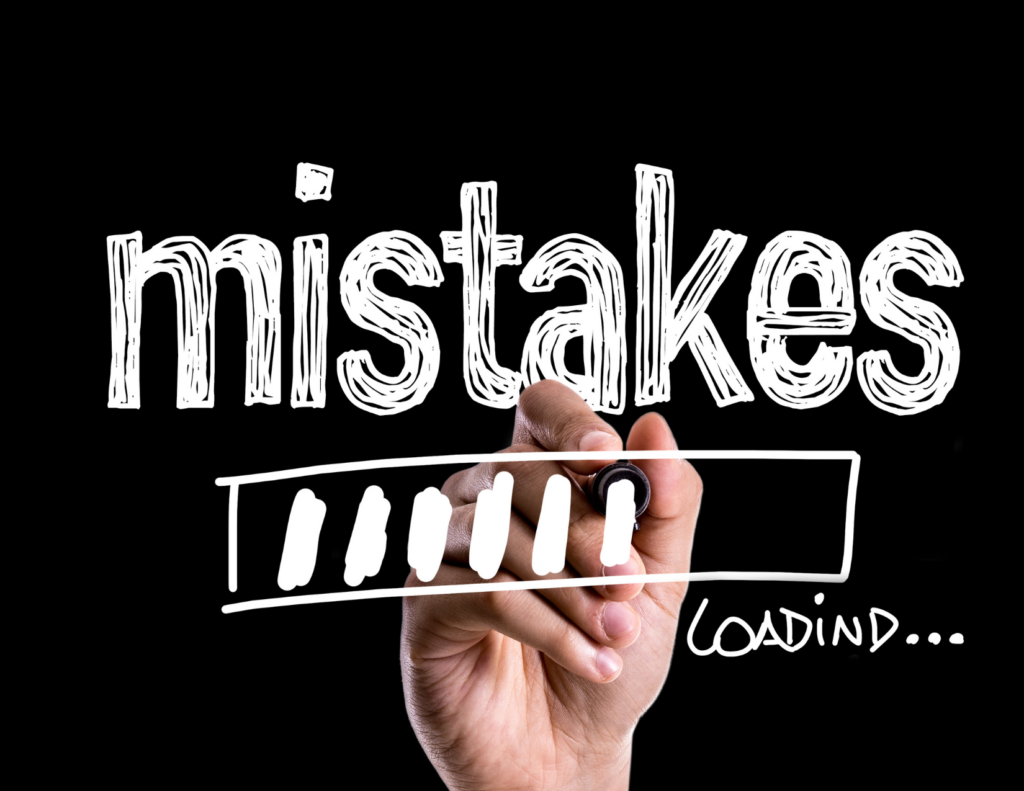
Insurance is an important part of financial planning because it protects you from unexpected losses and keeps you financially stable during difficult times. Many people make mistakes when purchasing and managing their insurance plans, which can lead to inadequate coverage, higher costs, and financial stress. If you can recognize and avoid these common mistakes, you will be much better able to protect yourself, your property, and your family.
Not Fully Assessing Coverage Needs:
One of the most common insurance mistakes people make is incorrectly figuring out what coverage they need. People often buy too little insurance or too much insurance, costing them money they don’t need to spend. To choose the right amount of insurance, you need to fully understand your circumstances, financial goals, and potential risks. For example, someone who is single and childless may not need as much life insurance as someone single. Likewise, renters in low-risk areas may not need as much property insurance as renters in flood-prone areas. To avoid this mistake, carefully consider your specific needs and lifestyle and consult with an insurance professional who can help you choose the right level of coverage.
Relying Only on Employer-Provided Insurance:
Many people make the mistake of relying solely on employer-provided coverage and not considering other options. Many people find insurance through work to be useful and affordable, but it may not meet all of their needs. As a result, business insurance plans often have limited benefits and may not cover certain services or treatments. Additionally, if you quit your job or become self-employed, you may not have any coverage at all. To be on the safe side, it is important to look for any gaps in the insurance your company offers and consider purchasing additional policies, such as health, life, or disability insurance, to fill those gaps and maintain your coverage.
Not Reading the Fine Print and Policy Exceptions:
Another common mistake is not carefully reading the terms, conditions, and limitations of your policy. Many people quickly look at their insurance policy and don’t fully understand what it covers. This can lead to an unpleasant shock when they need to make a claim. Several things are not covered by every policy, such as coverage limits, waiting periods, and situations where a claim can be denied. If you don’t read and understand these details, your claim could be denied, or you may have to pay extra fees. To avoid this, read your policy carefully, ask questions if anything is unclear, and seek help from your insurance company or broker to make sure you fully understand what it covers.
Not Understanding the True Importance of Liability Insurance:
Liability insurance is an important way to protect your finances that people often forget. Many people think that they won’t be sued or held liable, but accidents and other problems can happen to anyone. Liability insurance covers legal expenses, settlements, and judgments, which can put a huge strain on your finances if an accident happens, someone else’s property is damaged, or something else happens on your land. If you don’t have enough liability coverage, you could be personally liable for losses, which could wipe out your entire savings. To avoid this mistake, check how much liability coverage your policy offers and consider purchasing additional liability coverage or an umbrella policy if necessary.
Review and Update Your Policy Periodically:
Insurance needs change over time, but many people don’t review their plans regularly and make the necessary changes. Your insurance needs can change after a major life event, such as getting married, having a child, buying a home, or a major change in your financial situation. Strategies that worked for you a few years ago may not work for you now. If you don’t make these changes to your plan, you could end up with insufficient coverage or paying too much for coverage you don’t need. To avoid this mistake, review your policy every year or whenever you experience a major life change and ensure your coverage is now appropriate for your needs and goals.
Choose the Cheapest Policy, Regardless of What It Covers:
Price is an important factor to consider when choosing insurance, but focusing solely on price can leave you without adequate protection. Some people choose the cheapest policy without carefully considering their coverage options, which can leave a gap in their protection. It’s important to find a premium that isn’t too expensive, but it’s also important to make sure the coverage meets your needs. A policy with a lower premium may have a higher deductible, less coverage, or fewer benefits. To avoid making this mistake, you can shop around for different policies based on price and coverage and choose one that gives you enough coverage at a price you can afford.
Not Giving Out Important Information to Insurance Companies:
When applying for insurance, it’s important to provide accurate and complete information about your health, lifestyle, and other important factors. Some people make the mistake of withholding or lying about information to get lower insurance rates. This can result in the claim being rejected or the policy being canceled. When insurance companies calculate premiums and assess risk, they need accurate information, so any mistakes can have significant consequences. To avoid this mistake, be honest with your insurance company when providing them with information, and let them know immediately if any changes in your circumstances could affect your policy.
Don’t See the Benefits of a Portfolio Policy:
Buying multiple policies from the same company, such as home and car insurance, can save you a lot of money and make managing your policy easier. However, many people fail to consider the benefits of bundling and miss out on potential cost savings. Insurance companies often offer lower prices to people who buy multiple policies. This can help you save a lot of money. Bundling also makes it easier to update your plan and file claims because you only have to deal with one source. To avoid making this mistake, discuss bundling options with your insurance company to see if combining policies can lower your rates and simplify things.
Don’t Focus on Tax Deductions and Out-of-Pocket Expenses:
When choosing an insurance plan, it’s important to consider rates and out-of-pocket expenses, such as copays and deductibles. Some people only care about low premiums and don’t realize that a high deductible can mean huge out-of-pocket expenses during a claim. For example, a health insurance plan with a high deductible may have lower annual premiums, but it can cost you a lot if you need medical care. To avoid making this mistake, consider whether you can afford to pay your deductible and any other costs that come with your policy. Balancing the cost of your premium and deductible will ensure that your insurance is affordable and provides adequate protection when needed.
Don’t Look Elsewhere for Better Prices:
Many people make the mistake of staying with the same insurance company for years without checking other companies’ rates. Insurance rates can vary significantly from one company to another, and switching to a new company can mean you can get the same coverage for less. If you don’t shop around, you may not be able to save money. To avoid this mistake, it’s best to regularly get quotes from multiple insurance companies, especially when it’s time to renew your policy. You can use online comparison tools or talk to an insurance agent to find better rates and more options, and make sure you’re not paying too much for your coverage.
Conclusion:
Avoiding these common insurance mistakes can help protect your finances and ensure you have the coverage you need when you need it. By taking the time to think about your needs, understand the details of your policy, and review your coverage regularly, you can make informed choices that protect you from unexpected losses and ease your financial stress. Buying insurance is important for your peace of mind, and avoiding these common mistakes can help you get the most out of your insurance.
FAQs:
1. Why is it important to review my insurance needs regularly?
By regularly reviewing your coverage needs, you can ensure that your plan remains relevant to your current life situation. This reduces the chance that you will not have enough coverage or pay too much for coverage that you do not need.
2. Does a bundled policy save money?
Yes, purchasing multiple policies from the same company can potentially save you money, reduce your overall premiums, and make managing your policies easier.
3. What else should I look for when choosing a policy besides the premium?
Consider the coverage limits, exclusions, deductibles, and out-of-pocket costs of your policy. These will affect the cost of the insurance and the amount of coverage.
4. How often should I review my insurance claim?
If you are getting married, buying a new home, changing jobs, or going through a major life transition, you should review your insurance policy at least once a year.
5. What are the risks without insurance?
If you withhold or lie about information, your claim may be denied, your insurance may be canceled, or you may get into legal trouble. To avoid problems, it is important to provide accurate information.
